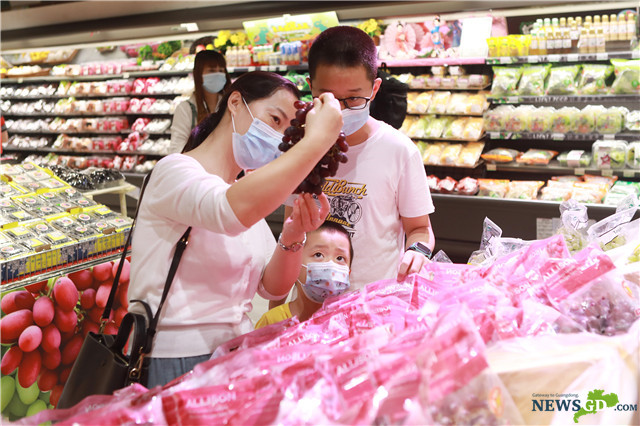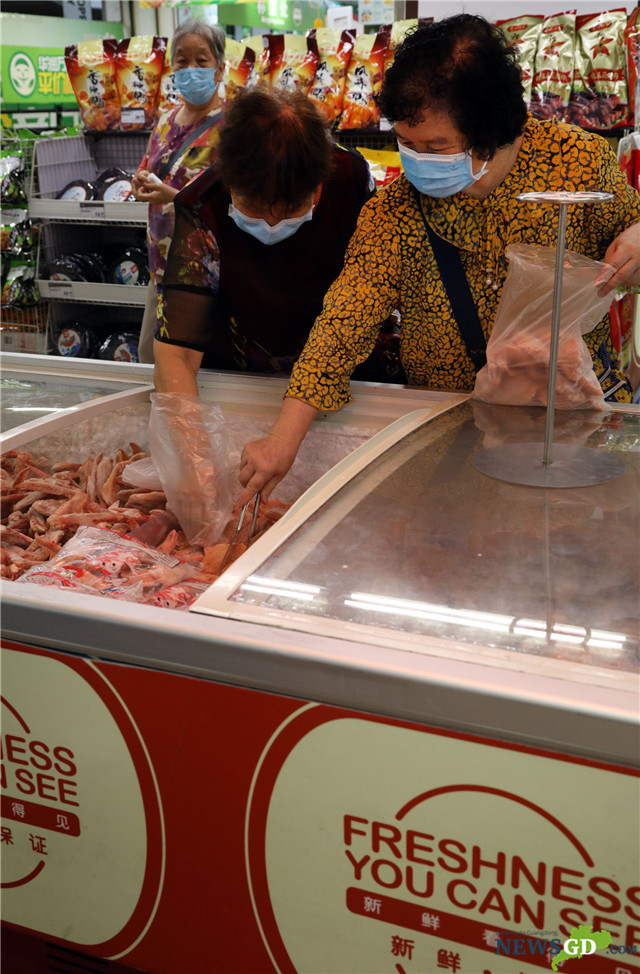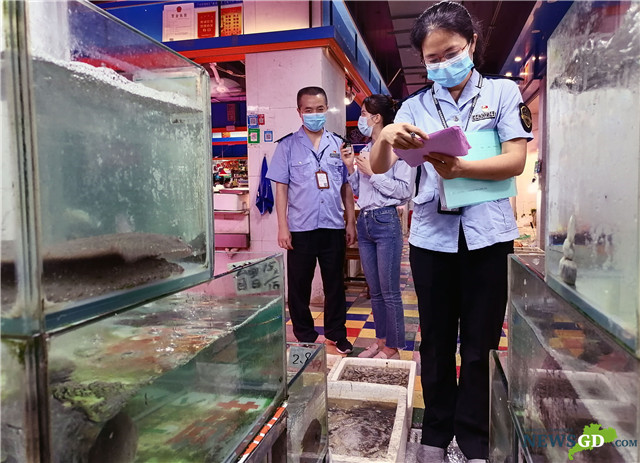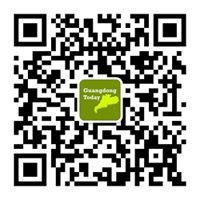Following one confirmed and two asymptomatic cases reported in a supermarket in Shenzhen on August 14th, a dozen large-scale retail enterprises in Guangdong have taken more measures to beef up epidemic prevention and control. Some have taken down all the seafood from the shelves, and some demand all imported meat and seafood products must be provided with a nucleic acid test certificate before coming into the supermarket.

People wearing marks choose fresh fruit in a supermarket. (Photo: Zhu Hongbo)
Vanguard
According to a person in charge, Vanguard has taken down all the seafood products from its chain stores including those online ones in Guangdong, all sales people have been given COVID-19 tests, and all have tested negative. The company has also taken a series of measures to bolster safety monitoring cold-chain foods, disinfecting tools, tableware and aquatic product areas frequently, and demanding that all workers wear a mask and have their temperature checked regularly.
Carrefour
A Carrefour worker told the reporter that the company requires all suppliers of imported meat and aquatic products to provide a nucleic acid test certificate before purchase. In addition to high frequency disinfecting all areas in the stores, the company has also conducted nucleic acid tests on people who have had contact with relevant products or processing environments on a random basis, all have tested negative.

Residents wearing face marks buy frozen chicken wings in a supermarket. (Photo: Wu Weihong)
AEON
Workers of AEON are suggested not to leave the city if it's not necessary; if they do need to leave Guangzhou, they will have to take a nucleic acid test before getting back to work, according to a person in charge of the supermarket. The company has provided COVID-19 tests to all the employees working with the cold chain, and examined the containers, outer packaging and shelves of all frozen foods every week since the end of July.
ParknShop
Nucleic acid tests have been conducted on all people working in the ParknShop supermarket which is investigating its frozen foods and the qualification of its suppliers too, so as to ensure food safety.

Law enforcement officers inspect aquatic products in a market. (Photo: Wu Weihong)
Cold chain products and seafood once again came under the public spotlight after coronavirus was found on imported frozen chicken wings and when supermarket workers contracted the virus in Shenzhen.
On July 23rd, China's State Council issued a guideline, demanding all imported meat products must be provided with a nucleic acid test certificate before coming into industrial plants for processing. The guideline is intended to strengthen the regulations on imported food products due to the spread of COVID-19 in some countries. Customs authorities have carried out COVID-19 surveillance on cold chain food from overseas nations to prevent the spread of coronavirus through imported cold chain food.
Residents are reminded to be cautious when purchasing imported frozen meat and aquatic products and continue to take protective measures to minimize the risk of infection.
Author | Monica
Editor | Jerry & Keane




